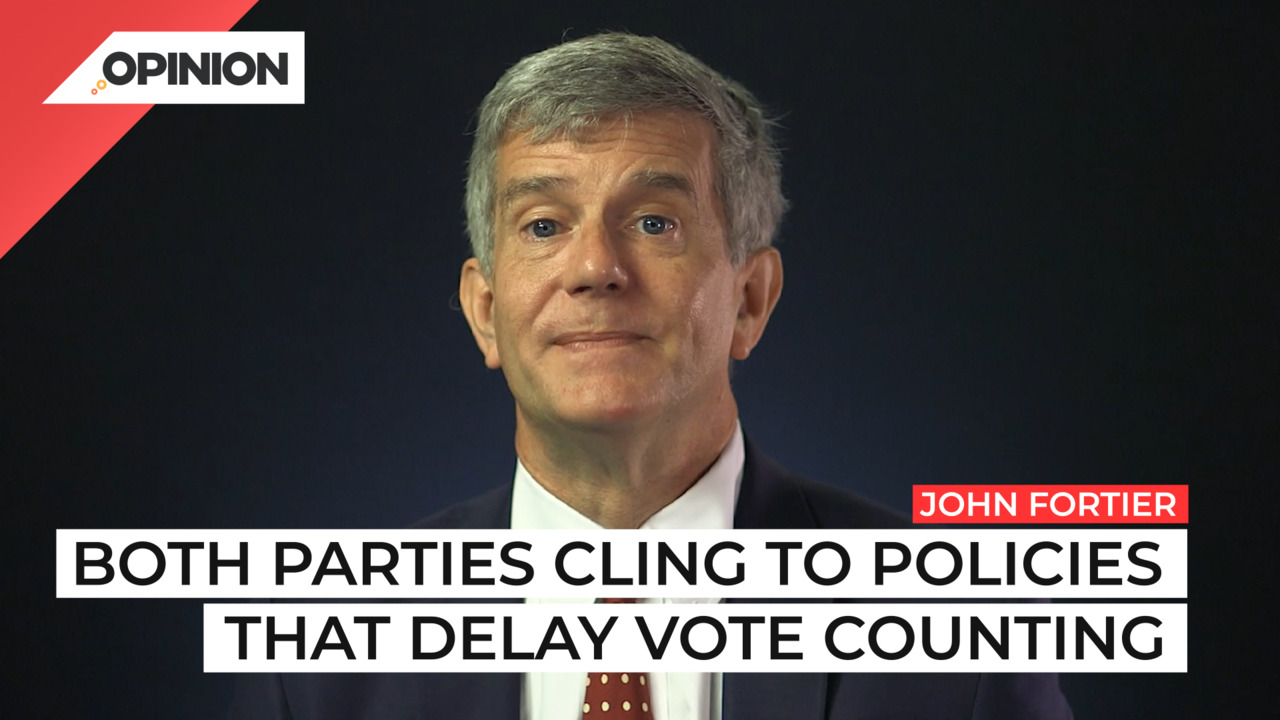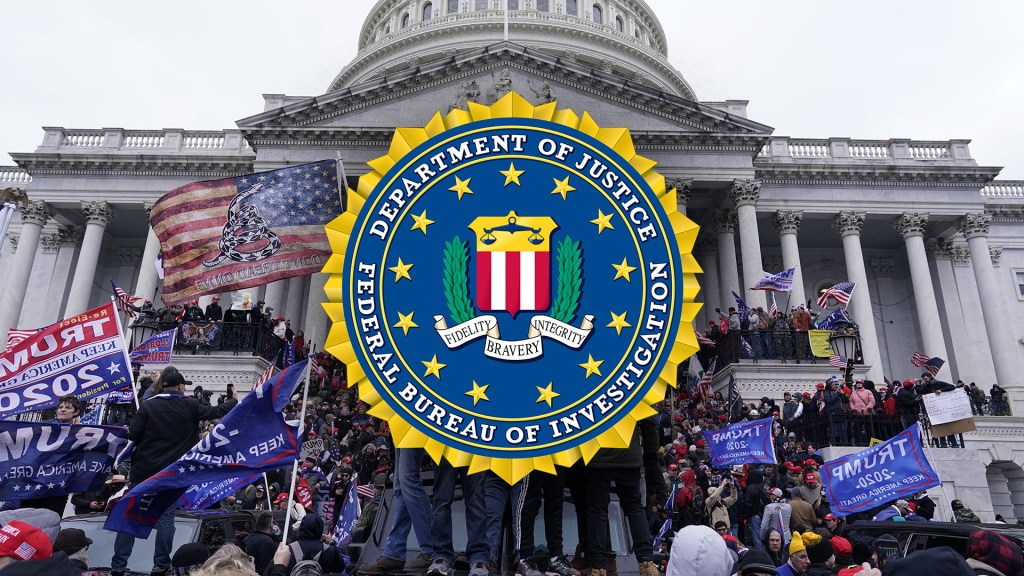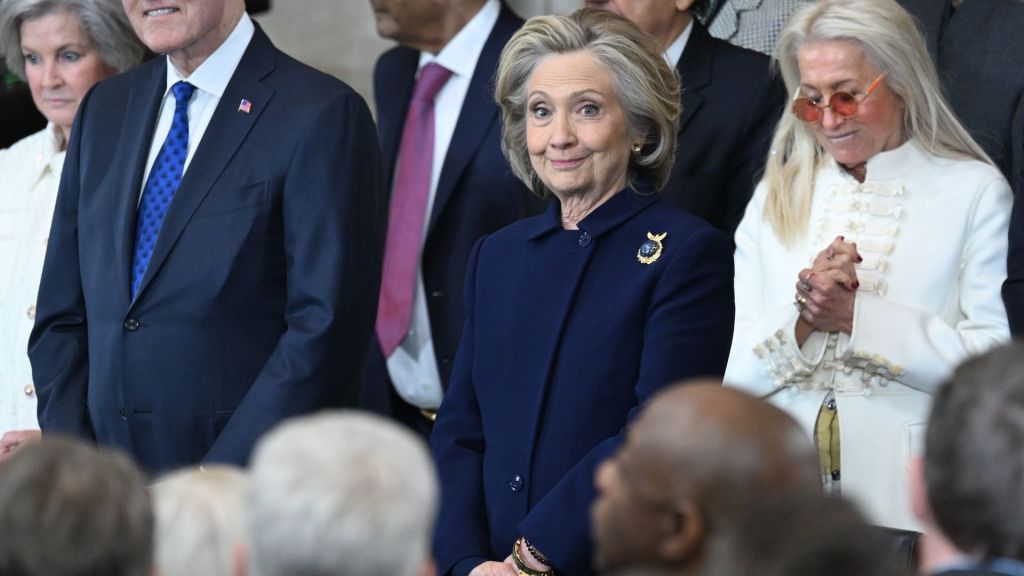
Commentary
-
Our commentary partners will help you reach your own conclusions on complex topics.
On Election night, many Americans stay up late, eagerly awaiting results. But over the last 30 years, the counting of votes has slowed significantly. Policies advocated by both parties contribute to this delay. Speed and counting of the votes is not the only value we should care about. Of course, first and foremost, the count should be accurate. But there’s no reason that we can’t have an election system that provides accuracy, transparency and speed in producing the election results.
Thirty years ago, if the average American opened the newspaper two days after the election, they would have found unofficial election results that were nearly complete. The final certified results produced later did not differ very much from these initially reported results. But that situation has changed dramatically.
Today, the percentage of votes unofficially reported two days after an election is much lower. In western states, where voting by mail is prevalent, up to 20% of votes are not reported in the first couple of days. In a few states, nearly 40% of votes are not reported in the first two days after the election. That means that voters may not know the winner of the election in a particular race for days or weeks even for races that are not very close or require a recount. In addition to this delay of initial results, in some states, the final certification of election does not occur for over a month after the election.
What’s the reason for the trend towards slower counting? The slower counting is related to the rise in voting by mail and provisional ballots. But more specifically, the slowdown occurs because many of these mail ballots are not ready to be counted on Election Day. Ballots arriving close to Election Day, or in some states after Election Day cannot be processed and counted at the same time as other ballots. How could we improve the speed and transparency of counting ballots? Both Republicans and Democrats cling to policies that delay the counting. In 2020, Republicans often voiced opposition to early processing of mail ballots. When a mail ballot arrives, the envelope needs to be checked to ensure that the voter has provided all necessary information. Is the name on the envelope on the registration list? Has the voter provided the proper address? In some states, a signature or other identification is required. In some states witnessed signatures and information are required. If there are problems with the information on the envelope, some states have a process by which the voter can be notified and be given the opportunity to fill in the correct information. If at the end of this process, the voter has met all of the requirements, the ballot can be opened, and the ballot can be placed in a machine where the ballot can be tallied on Election Day. If a state does not allow any pre-processing of mail ballots, then come Election Day, there’ll be a large stack of ballots that might take days to process and ultimately count. On the other side of the aisle, Democrats often favor allowing ballots to be counted if they are put in the mail and postmarked by Election Day, with some states accepting ballots that arrive over a week after Election Day. In a majority of states, ballots are due by Election Day, but a large minority of states accept ballots postmarked by Election Day. The problem is obvious. Ballots that arrived days after the election cannot be processed or counted until much later.
Some may say, “What is the harm in taking the time to get the count right?’ But why leave Americans waiting and speculating about reasons for delay when a couple of policy fixes would allow for accurate, speedy and transparent counts of the vote?
-
Musk-Ramaswamy DOGE initiative overdue and full of challenges
After winning the U.S. presidential election, Donald Trump announced his plans for a proposed presidential advisory commission he calls the Department of Government Efficiency (DOGE). Headed by Elon Musk and Vivek Ramaswamy, DOGE’s mission would be to trim government budgets, reduce regulations and shrink the federal workforce. Many Republicans view the initiative as overdue, while… -
This is the dawn of a new national Republican coalition
Republicans have won full control of both Congress and the White House. Donald Trump will return to Washington, D.C., as the first Republican president since 2004 to have won the national popular vote, ironically by almost the same margin that Hillary Clinton beat him by in 2016. These GOP victories relied on high pro-Trump voter… -
Why are transitions of power so complicated in the United States?
The American political tradition of a long and complicated transition of power, lasting from November to January, is an enigma in the world today, especially when compared to the many nations where transitions of power take place immediately or in less than 24 hours. Yet even after a new administration takes power in the United… -
The 25th Amendment should remain above politics
The 25th Amendment to the United States Constitution provides for the removal of any American president who is incapacitated or otherwise unable to perform or execute the duties of the nation’s highest office. On and after Jan. 6, 2021, when pro-MAGA insurrectionists pillaged the U.S. Capitol, senior officials called on Vice President Mike Pence to… -
Uncensored political content like Trump-Musk on X is a win for free speech
Former President Donald Trump returned to X, formerly known as Twitter, on Monday, Aug. 12, during a conversation with billionaire Elon Musk. Despite a rocky technical start, the two engaged in a conversation that lasted over two hours, covering topics from a recent assassination attempt to familiar attacks on President Biden and Vice President Harris.…
Latest Opinions
-
 Getty Images
Getty Images
Pirate treasure: Kid finds phenom Paul Skenes’ rookie baseball card
-
 Reuters
Reuters
2K migrant caravan begins journey to US amid new Trump border security orders
-
 Getty Images
Getty Images
'I was guilty': Jan. 6 pardon recipient says she'll reject it
-
 Getty Images
Getty Images
Ex-wife of Pete Hegseth denies abuse allegations amid confirmation process
-
 Getty Images
Getty Images
Jury selection begins in A$AP Rocky’s gun trial over 2021 shooting
Popular Opinions
-
In addition to the facts, we believe it’s vital to hear perspectives from all sides of the political spectrum.






